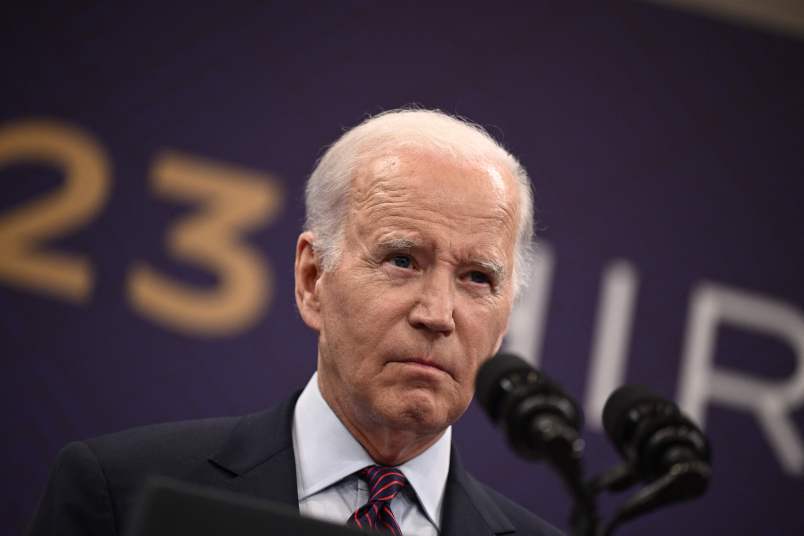It looks like we’re in for a down-to-the-wire drama over the next ten days to two weeks as we come down to the still-fuzzy default deadline. We’re going to have a lot of pinging back and forth, drama and access journalism headlines over the next several days. We’ll try to keep you aware of those things while keeping the focus on the fact that this is a manufactured crisis and not truly a negotiation (in the sense of each side bargaining to get things).
There’s been a series of stops and starts in recent days, with House Republicans repeatedly leaving the talks and then coming back. The key driver is the Freedom Caucus. The negotiators were near some mix of clawed-back COVID funds, “permitting reform,” work requirements and budget caps. All bad, but still very different from the Freedom Caucus-dictated budget outline passed several weeks ago. As a deal got closer, the Freedom Caucus yanked McCarthy back and said they wanted their whole bill.
That was always going to be a nonstarter for the White House. Among other things it involves repealing Biden’s signature legislation from the first two years of his administration — the Inflation Reduction Act, all the core stuff. Also key to remember is that many House Republicans only agreed to vote for the budget outline bill as a tool to force the White House to negotiate. Many said explicitly that they wouldn’t vote for that bill as actual legislation. It’s full of insanely unpopular stuff. However this turns out, Democrats are going to use that vote to run against vulnerable Republicans. It was toxic enough as a placeholder vote, even worse making it law.
When you see McCarthy’s comments this weekend that the White House isn’t being reasonable, they’re referring to not engaging with that bill as the basis of a final agreement.
There never should have been negotiations. But you can see the basic problem with them even once they started. The White House was probably willing to agree to concessions that would have angered a lot of Democrats. But they were never going to agree to repeal all of their 2021–22 agenda or even key elements of it. So even with the White House’s unfortunate willingness to negotiate, the chances of a successful negotiation were pretty remote since the Freedom Caucus was in charge.
This gets us to a second point. If you’re going to make a no-negotiations ultimatum you have to have something in mind to enforce it and be prepared to use it. Even though the White House ultimately did decide to negotiate that applies as much now as it did before the decision. If the White House is telling Republicans “your new demands are unreasonable,” no, what’s the plan to back that up?
It was always unrealistic to believe House Republicans would simply cave since they believed, correctly as it turns out, that the White House would eventually negotiate. It was equally unrealistic to think that bad publicity or public discontent would turn them. That’s simply not how Republicans operate. It’s certainly not the way the Freedom Caucus rolls, in large part because they’re all in safe districts.
The Republicans have a threat — catastrophic economic crisis; the White House needs one too. Otherwise there’s simply no way to avoid a really bad outcome. That threat from the White House has to be some way of credibly threatening to cut short the whole drama and leave Republicans with no ransom at all. And yet it appears the White House went into this without a clear weapon to brandish to back up its ultimatum, not one it was prepared to justify and use.
Now, it’s not over. As I mentioned here, Biden teased a 14th Amendment option over the weekend. So perhaps they either have something up their sleeve or are trying to improvise something now on the fly. You can argue that the move to negotiate was to demonstrate a willingness to arrive at a reasonable negotiated settlement knowing that Republicans were incapable of doing that. It is possible the White House saw these negotiations in that light. But it’s hard not to come to the conclusion that they simply hadn’t gamed out a way to enforce their ultimatum or even a way now to say no to the Freedom Caucus’s maximal demands and make it stick.






